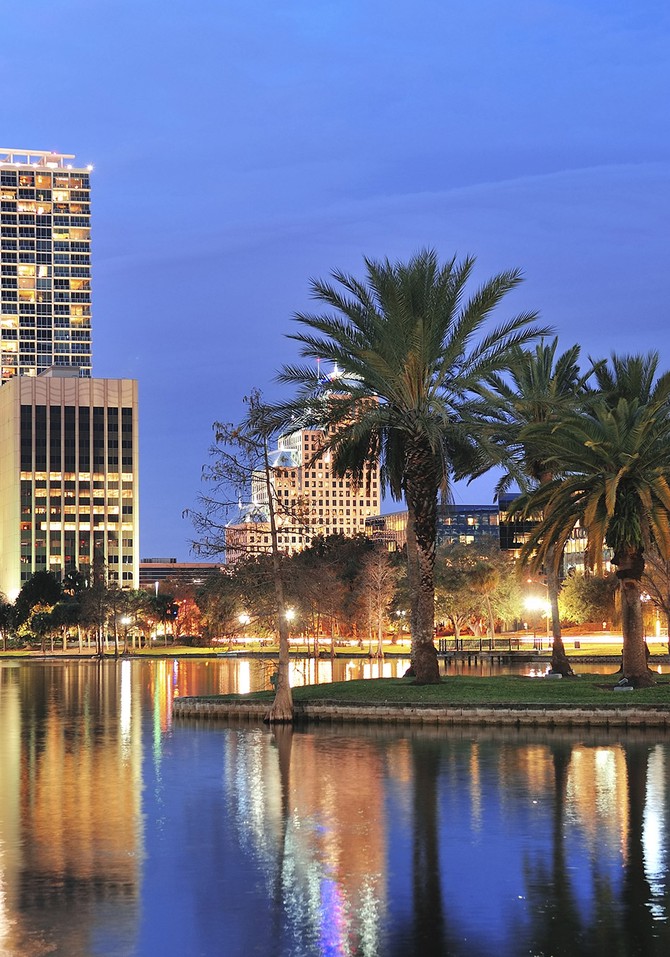SPONSOR CONTENT
Military Families Need Apply: Top 10 Places Hiring Now
USAA and Hiring Our Heroes commissioned Sperling's Best Places to create a list of the best places in the nation for veterans to find jobs as they transition from the armed forces to civilian life.
Sponsored Content By USAA

Thinkstock.com
Houston,Texas
Houston earns the top spot in our 2013 rankings by offering affordability, a vibrant economy, and the jobs and industries that best fit the skills of today's transitioning military members. Houston's unemployment rate of 6.1% is well below the U.S. average, and its job growth of 2.6% over the last year is among the top 10% of all metro areas. Despite its booming economy and higher-than-average household income, the median housing price is below the national average. Plus, Houston has the amenities and resources that come with being the fourth largest metro area in the U.S. Over the last year, the city has appeared on numerous lists for its variety of interesting activities and sights.

Thinkstock.com
Dallas,Texas
The Dallas metro area claimed the No. 2 position by balancing affordability with a dynamic economy, which offers both a large number and variety of jobs for veterans. Dallas housing prices have remained stable throughout the recent housing downturn and are still attractive at a $123,741 median price. As the seventh largest metro area in the U.S., "Big D" has plenty of resources for its residents including major hospitals, an international airport hub plus recreational and cultural amenities. And like other places that are benefiting from the recent boom in oil and gas exploration and development, the Dallas economy is thriving with an unemployment rate of 6.2% and job growth of 2.9% over the last year.

Thinkstock.com
Minneapolis,Minnesota
Minneapolis is ranked No. 3, thanks to its diverse and robust economy as well as its employment opportunities for veterans. The city also has a high quality of life with the lowest crime rate of the places in the top 10. The cost of living is only slightly above the U.S. average with the median housing price of $167,000, and the metro area's household income is the highest among our top 10 metros. Job growth has been steady, and the unemployment rate in Minneapolis is low at 5.3%.

Thinkstock.com
Oklahoma City,Oklahoma
The metropolitan area of Oklahoma City has once again earned a spot on our overall top 10 list and has the lowest cost of living on our list, with a median home price of only $105,800. Government employment opportunities play a large role in Oklahoma City's ranking as well, as it's the state capital. With the recent oil, gas and mineral development, the local economy is performing well, with an unemployment rate of only 4.6%. The area also is home to the University of Oklahoma, which provides educational resources to its 25,000 students and local residents.

Thinkstock.com
Austin,Texas
Coming in at No. 5, Austin is another metro area to make our overall top 10 list again. It's home to the University of Texas, the state capital and many major high-tech companies. Austin appears regularly on lists of the best places to live. It costs no more to live here than the national average, with the median home price of $186,800. Household income is one of the highest among our top 10 places, and the economy is performing extremely well with an unemployment rate of 5.3% and a job growth rate of 3.4% over the last year.

Thinkstock.com
Norfolk,Virginia
The Norfolk metro area is one of four places to appear on our overall top 10 list again and, this year, has earned the No. 6 rank. The area boasts the largest number of federal jobs of any of our top 10 places. It also has the largest concentration of military bases and facilities of any metro in the United States, and is home to facilities for NASA and the Departments of Commerce, Veterans Affairs Transportation and Energy. Its unemployment rate is a low 5.7%, and the median home price is higher than average but still attractive at $194,700.

Thinkstock.com
Tampa,Florida
Tampa claims the No. 7 rank as one of the most affordable places among our overall top 10 list. Slowly recovering from a recent housing downturn, the median home price is a low $106,600. The unemployment rate is the highest among our top 10 places, but at 6.9%, it's still below the national average. Also, the area's job growth ties for highest among our top 10 at 4%. The area is home to a number of universities and colleges, including the University of South Florida.

Thinkstock.com
Salt Lake City,Utah
The No. 8 spot belongs to Salt Lake City, which has the lowest unemployment rate of our top 10 places at 4.5%. It ties with the greatest job growth at 4% over the last 12 months. Though it has one of the highest household incomes, it also has the highest median home price among the overall top 10 at $222,300. Added benefits include Salt Lake City being the state capital and home to 30,000 University of Utah students.

Thinkstock.com
Orlando,Florida
The Orlando metro area earns the No. 9 ranking thanks to a mix of affordability and a healthy economy. It boasts one of the lowest median home prices among our overall top 10 at $117,600 while posting solid economic indicators with an unemployment rate of 6.6% and one-year job growth of 2.5%. Given its close proximity to many major attractions and theme parks, it has a large leisure and hospitality industry. Orlando is also home to the University of Central Florida, one of the largest schools in the U.S.

Thinkstock.com
Fort Lauderdale,Florida
The Fort Lauderdale metro area is the third metro area in Florida to earn a spot on the overall top 10 list. This is the first time the city has made the list, thanks to its strong employment opportunities for veterans. The area is benefiting from low housing prices as the region recovers from the recent housing downturn. The area's cost of living is well below the national average, and the median price of a typical home is $137,700. The economy shows strong job growth at 3.1% over the past year, combined with a low unemployment rate of 5.7%.
Published 05/04/2014

